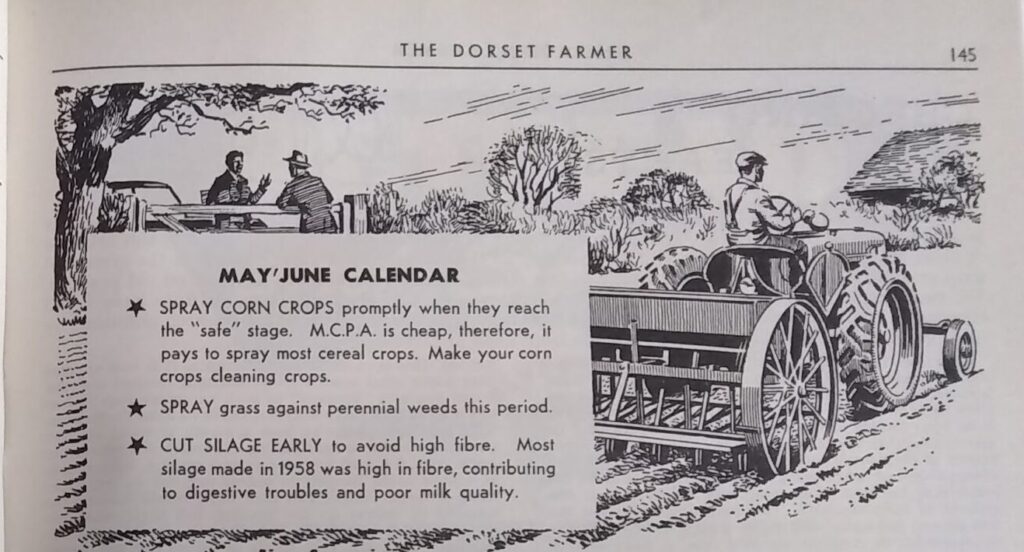In the local studies library at the Dorset History Centre you can find a large collection of journals. These journals are packed with fascinating articles and are often an underused resource. In this series of blogs we will be highlighting some of the interesting articles within them!
This is the sixth in our series of blogs looking at the journals held at the Dorset History Centre. The 1950’s saw the first publication of ‘The Dorset Farmer’, the official journal of the Dorset branch of the National Farmers Union. The Dorset History Centre holds volume 4, from 1956, and then editions from Volume 8, 1958, onwards.

In the 1958 and 1959 editions of this journal you can find a section called ’spotlight’, which gives a description of the life of one of the members of the union. The farmer featured in the journal for May 1959, Hugh Simpson of West Lulworth, who wrote this short verse on being told he was going to be featured:
‘We have a custom – when you’re dead,
To leave the worst of you unsaid.
So, though the limelight’s hard to bear,
This thought may compensate and cheer
Not every poor Tom, Dick or Harry
Can read his own obituary!’
—
Included in the Spotlight feature from April 1959 is the eventful life of Harold Bancroft, a farmer from Milbourne St Andrew.

Bancroft, ironically known as Tiny because of his large stature, was born in the West Indies in 1917. His father was a doctor and he was the only one of three siblings to survive an unfortunate incident when a poison was mistaken as smallpox vaccine and given to the three children. This incident left him with a stammer.
In 1939 Mr Bancroft and five of his friends paid their own fare to come to England and fight in World War Two. They draw lots to decide which service to join, which led to him becoming a pilot in the RAF.
In 1941 he married a Dorothy Spite in Lincolnshire and in the same year was shot down over the Mediterranean. Bancroft and four other crewmen were adrift in a raft for eleven days with no food and very little water. On the eleventh day they drifted near land. Three of the men were already unconscious but Bancroft had enough strength left to swim the six miles to shore to get help. Sadly, the three unconscious men did not survive.
After recovering in hospital Bancroft was taken prisoner by the Italians. He managed to escape only to be recaptured by the Germans. In total he spent three years as a prisoner of war.
After the war he and his wife ran a general store in Lincolnshire before returning to Barbados, but the climate did not suit Mrs Bancroft and they eventually returned to England and settled in Dorset.
Starting as a worker on a farm he worked his way up to being an owner of a 53-acre pig and dairy farm. He attributes his success to his ability to listen to the advice and experience of others.
This is just one example of the fascinating stories hidden in our journals.
—
This is the fifth in our series looking at our academic journals. You can read other blogs by clicking on the link below:

